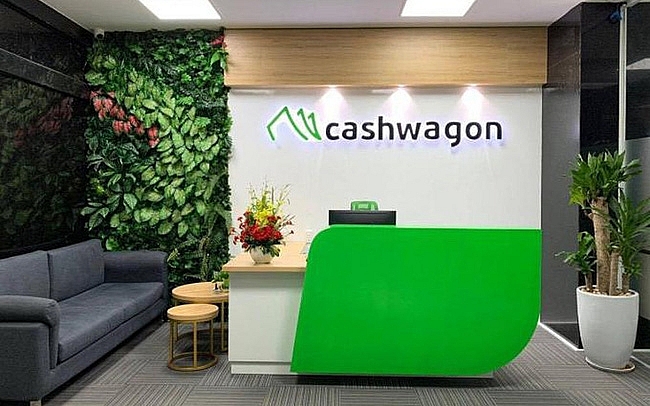NA member urges legal framework for lending apps
 |
| Cashwagon is one of the most popular lending apps in Vietnam which came under investigation of suspected usury |
At the National Assembly meeting on November 3, delegate Nguyen Thi Thuy from the northern province of Bac Kan raised her voice against usury via smartphone applications.
“In a few cases, a victim initially took out a loan of only VND8 million ($347.8) through two lending applications. However, after three months, the debt skyrocketed to VND200 million ($8,695),” Thuy said.
Therefore, she recommended the government to adjust regulations or even build new ones focusing on lending via apps. Thuy also proposed the State Bank of Vietnam to develop small loan packages with simple procedures to help low-income people.
Thuy's points show the inability to rein in usury, with criminals using a multitude of ways to get around the rules, now reaching into smartphone applications as an effective means to approach victims.
Specifically, to circumvent local regulations, the apps offer an interest rate of 18-20 per cent (to comply with the law) then attached many kinds of fees. As a result, the rate exceeds the regulated ceiling.
Singapore-backed Cashwagon Vietnam is one of the names accused the most. In June 2020, the company was investigated for charging 500 per cent interest rates annually for the loan of VND2 million ($86.9). Specifically, the customer had to pay a total of VND2.88 million ($125.2) after 30 days. In case the customer fails to pay in time, the interest rate even goes up to 1,000 per cent.
Last year, Cashwagon's revenue and after-tax profit were reported at VND532 billion ($23.13 million) and VND163 billion ($7.08 million), equaling a gross margin of 31 per cent – an ideal figure for most banks in Vietnam.
As COVID-19 is still threatening people's lives, many of them have turned to lending applications as a solution to make a living. A recent report published by Google revealed that downloads of lending apps increased by 33 per cent on-year.
Accordingly, the number of searches for financial management has grown significantly since the health crisis broke out. Of this, keywords such as “credit cards” and “debit cards” spiked by 40 per cent against the time before the pandemic. Notably, the keyword “online lending applications” soared by 300 per cent on-year.
What the stars mean:
★ Poor ★ ★ Promising ★★★ Good ★★★★ Very good ★★★★★ Exceptional
 Tag:
Tag:
Related Contents
Latest News
More News
- Foreign leaders extend congratulations to Party General Secretary To Lam (January 25, 2026 | 10:01)
- 14th National Party Congress wraps up with success (January 25, 2026 | 09:49)
- Congratulations from VFF Central Committee's int’l partners to 14th National Party Congress (January 25, 2026 | 09:46)
- 14th Party Central Committee unanimously elects To Lam as General Secretary (January 23, 2026 | 16:22)
- Worldwide congratulations underscore confidence in Vietnam’s 14th Party Congress (January 23, 2026 | 09:02)
- Political parties, organisations, int’l friends send congratulations to 14th National Party Congress (January 22, 2026 | 09:33)
- Press release on second working day of 14th National Party Congress (January 22, 2026 | 09:19)
- 14th National Party Congress: Japanese media highlight Vietnam’s growth targets (January 21, 2026 | 09:46)
- 14th National Party Congress: Driving force for Vietnam to continue renewal, innovation, breakthroughs (January 21, 2026 | 09:42)
- Vietnam remains spiritual support for progressive forces: Colombian party leader (January 21, 2026 | 08:00)


























 Mobile Version
Mobile Version